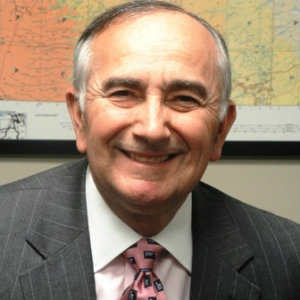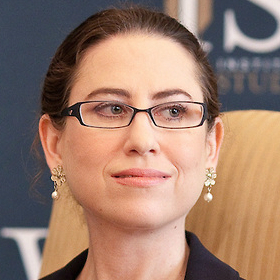Russia: A Return to Rivalry
Examine U.S.-Russia relations since the end of the Cold War.
April 10 - May 15, 2020
Online Seminar
Over the past three years, President Trump has courted controversy with his efforts to wrest control of American foreign policy—coming into conflict with US national security institutions and, at times, his own Cabinet officers. Although this headline-grabbing drama has often been characterized as without precedent, the question of how a President imposes his national security vision on an often recalcitrant Executive branch has long been part of American history.
In his classic work, Presidential Command, Peter Rodman—a veteran of multiple administrations—provides an insider’s account of how a succession of commanders-in-chief employed a range of tactics and strategies, with varying degrees of success, to ensure they were the ones setting the direction of American foreign policy rather than their underlings. When is it appropriate for the President to overrule career bureaucrats versus deferring to their expertise? What is the role of political appointees in channeling—or ignoring —Presidential direction in foreign policy? What are the trade-offs between coherence and collegiality, and between persuasion and coercion, as a President tries to establish himself as the “decider-in-chief”?
In this online seminar led by foreign policy scholar Vance Serchuk, students will use Rodman’s case studies to explore the historical experience surrounding presidential control over foreign policy and the meaning of executive power. From Richard Nixon’s secretive back-channel diplomacy that bypassed the State Department to George H. W. Bush’s more collaborative team-based approach, they will examine how each president’s character, worldview, and management style influenced the direction of events and outcomes. They will also study the relationship between presidents and the diplomatic, military, and intelligence bureaucracies they have to deal with—and work through—and how that affects the success or failure of their policies.
Image courtesy Gerald R. Ford Library
A conversation about Peter Rodman's Presidential Command

Vance Serchuk is Executive Director of the KKR Global Institute and an Adjunct Senior Fellow at the Center for a New American Security. Prior to joining KKR, Mr. Serchuk served for six years as the senior national security advisor to Senator Joseph Lieberman (I-Connecticut).

Vance Serchuk is Executive Director of the KKR Global Institute and an Adjunct Senior Fellow at the Center for a New American Security.
Prior to joining KKR, Mr. Serchuk served for six years as the senior national security advisor to Senator Joseph Lieberman (I-Connecticut). In this capacity, he worked on a broad range of international issues, including comprehensive sanctions legislation, the U.S. rebalance to the Asia-Pacific, and the U.S. response to the Arab Spring, traveling to over 60 countries in Asia, Latin America, Africa, and the Middle East.
From January to July 2013, he was a Council on Foreign Relations-Hitachi International Affairs Fellow, based in Japan, and a regular columnist for the Washington Post. His writings have also appeared in the New York Times, Wall Street Journal, and Los Angeles Times.
Mr. Serchuk is a summa cum laude graduate of Princeton University, holds a J.D. from Yale Law School, and was a Fulbright scholar in the Russian Federation.
Questions to consider for each administration:
Readings:
Readings:
Readings:
Readings:

Vance Serchuk
Vance Serchuk is Executive Director of the KKR Global Institute and an Adjunct Senior Fellow at the Center for a New American Security. Prior to joining KKR, Mr. Serchuk served for six years as the senior national security advisor to Senator Joseph Lieberman (I-Connecticut).
Mick Ryan
Mick Ryan is a retired major general in the Australian Army. He is now an adjunct fellow at the Center for Strategic and International Studies in Washington DC, and a non-resident fellow of the Lowy Institute in Sydney. In January 2023 Mick was also appointed as an Adjunct Professor at the University of Queensland in Brisbane, Australia.

James M. Dubik
LTG James M. Dubik (U.S. Army, Ret.) is a Senior Fellow at the Institute for the Study of War and a Professor at Georgetown University’s Security Studies Program. General Dubik has extensive operational experience in Iraq, Afghanistan, Japan, Korea, Thailand, Bosnia, Haiti, Panama, Honduras, and in many NATO countries.

Frederick W. Kagan
Frederick W. Kagan is a Senior Instructor with the Hertog War Studies Program at the Institute for the Study of War. The author of the 2007 report “Choosing Victory: A Plan for Success in Iraq,” he is one of the intellectual architects of the successful “surge” strategy in Iraq. He is the director of AEI’s Critical Threats Project.

Kimberly Kagan
Kimberly Kagan is a Senior Instructor with the Hertog War Studies Program and founder and president of the Institute for the Study of War. She is a military historian who has taught at the U.S. Military Academy at West Point, Yale, Georgetown, and American University.